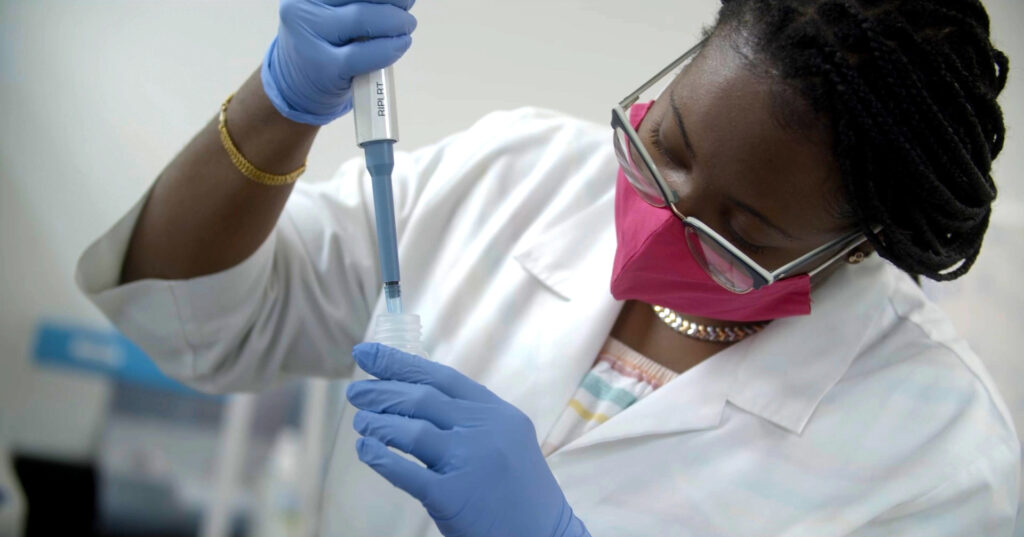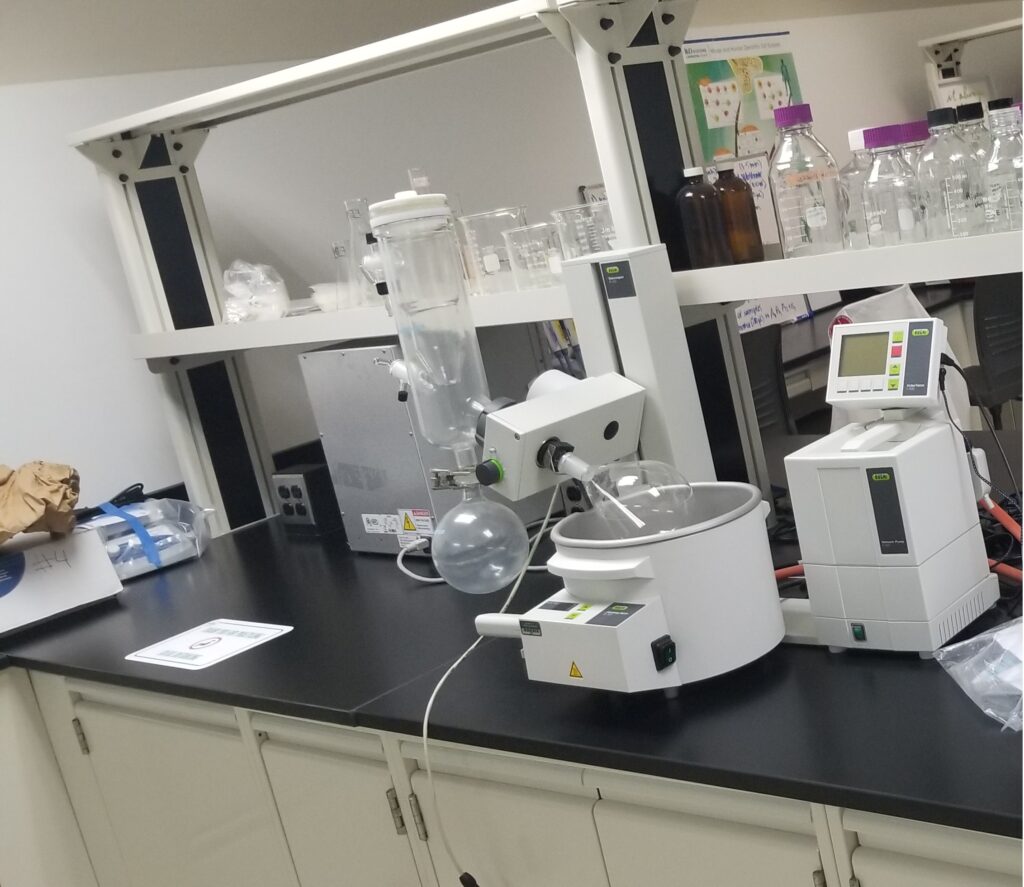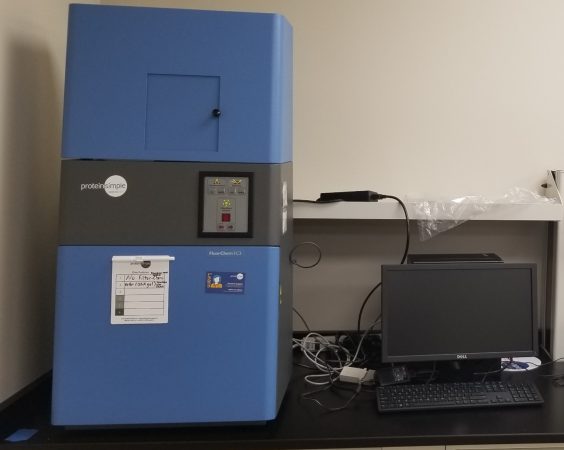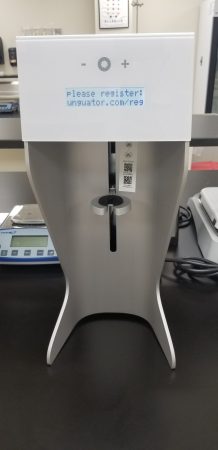
LU Research Facilities & Equipment
LU has dedicated research laboratories marked as “dry lab” and “wet lab” areas where at least thirty-five researchers can work simultaneously at any given point of time. Additional chemical, solvent, and accessory storage areas are available to support the research endeavors. LU laboratories are well equipped with in silico tools and scientific equipment that support the whole range of biomedical and pharmaceutical sciences research including:
- Rationale drug design
- Analysis of protein binding interactions
- In silico prediction of Absorption, Distribution, Metabolism, and Excretion (ADME) and other biopharmaceutics properties
- Synthesis and evaluation of new chemical entities
- Drug metabolism, pharmacokinetics, and their related drug interactions
- Formulation of new drug candidates and optimization of existing drug delivery systems
- Pharmacological evaluation of synthetic molecules and natural products in mammalian cells
- Gene and protein expression studies
Following are highlights of research equipment available in the LU laboratories. In addition, several research tools including gel electrophoresis and Western blotting systems, chemical hood, SpeedVac integrated vacuum concentrator, -80°C freezer, -20°C freezer, 4°C fridges, molecular and analytical grade water purifier system, icemaker, refrigerated centrifuge, autoclave, orbital shaker, and micro-homogenizer are available in the LU labs.
Contact
For a complete list of available research tools in LU labs, collaboration or pay-per-use service, researchers are requested to contact
Dr. Aarajana Shrestha (Research Laboratory Manager, Larkin University)
Research Facilities & Equipment
Agilent 6400 Series Triple Quad Liquid Chromatography Mass Spectrometry (LC/MS)
Agilent 6400 Series is a state-of-the-art liquid chromatograph with powerful analytical capability to a wide range of applications. It is a versatile machine capable of monitoring over 4000 multiple reaction transitions through Dynamic (multiple reaction monitoring) MRM mode. Our Infinity II LC/MS modules support the triple quad LC/MS set up and provides the versatility and performance to solve virtually any analytical challenge. The Genius XE 35 laboratory nitrogen generator (Peak Scientific) ensures seamless supply of nitrogen for the LC/MS analyses. A broad selection of ion sources enables the most flexible detection for the variety of compound classes amenable to high performance liquid chromatography separation and beyond. Its accompanying powerful software along with curated compound databases and libraries enable users to set up an LC/MS or LC/MS/MS method for their specific applications. The software (Agilent Mass Hunter Workstation) is equipped with components for data acquisition, quantitative and qualitative analyses, that are commonly employed in identification of chemical entities, identification of pharmaceutical impurities, drug analyses in formulations, bioanalytical work using tissue and biological fluids, and several other biomedical, pharmaceutical, and clinical sciences research.
Buchi Pure C-810 Flash Chromatography
Buchi Pure C-810 flash is a compact and easy to use chromatographic instrument. This is a smart design chromatographic system that offers maximal user and sample safety with the closed fraction collector bay that ensures clean air with minimal use of space. It is fully automated and performs any integrated flash and preparative HPLC applications with UV and evaporative light scattering detector system for extraordinary purification possibilities.

Mammalian cell culture Facility
Mammalian cell culture work at Larkin University is carried out in a dedicated area of the research lab that houses various cell culture equipment, such as cell culture hood (biosafety cabinet), humidified CO2 incubators, inverted microscope, centrifuge machine, autoclave, and water bath. There are two biosafety cabinets (Labconco®) that are Class II A2 laminar flow hoods which allows our users to maintain aseptic environment essential for cell culture experiments. We have two air-jacketed incubators (VWR) to meet the needs of all the researchers at Larkin University. The cell cultures are examined using a simple inverted microscope to distinguish any morphological changes which may be an effect of a drug that is being tested on these cells. Currently, several projects are underway at Larkin University which utilizes mammalian cell culture as in vitro model system to test the cytotoxic potential of different anti-cancer drugs.
Real-Time Polymerase Chain Reaction
(RT-PCR)
Polymerase chain reaction (PCR) is one of the core techniques in molecular biology, genetics, and forensic studies. PCR is frequently used in gene expression analysis, genotyping, microarray validation, genetic testing, nucleic acid monitoring, and pathogen detection. Typically, a PCR uses a polymerase enzyme that amplifies the DNA to several copies obtained through thermocycling the mixture. We have a thermal cycler with 96 well blocks (Multigene Optimax, Labnet) for regular genotyping or high-throughput PCR analysis. This instrument allows the selection of the annealing temperatures for better gradient performance. We are also equipped with the advanced generation real-time quantitative PCR (RT-qPCR) (AriaMX, Agilent) system with a touch screen and a user-friendly interface for researchers. It is a fully automated system that is useful not only in detection but also in quantitative PCR amplification and data analysis.
Quickdrop
The micro-volume spectrophotometer (SpectraMax QuickDrop, Molecular Devices) quantifies micro volumes of solutions to analyze DNA, RNA, oligos, and proteins. The built-in port on this instrument can use volumes as low as 0.5 µL. This instrument can also be used for regular spectrophotometric analysis with a cuvette port. The larger and high-resolution screen of this instrument offers easy pre-configuration of methods, including kinetic assays.

ProteinSimple FluorChem FC3 Imaging System
FluorChem FC3 imaging system is useful for visualization and quantification of Western blot bands captured through chemiluminescence or fluorescence. The imaging system is equipped with an intuitive ActiveView software that permits our users to perform quantitative analysis of the images. Multiple lens options allow this system to be customized for specific application, such as chemiluminescent Western blots, UV fluorescent DNA and protein gels and colorimetric protein gels.

Dissolution Test Apparatus
Distek dissolution system 2100A is a 6-station United Pharmacopoeia- (USP-) standard drug release testing device. It is an industry-standard dissolution rate test apparatus for determining the biopharmaceutical potential of solid dosage forms including tablets, capsules, pills, pessaries, suppositories and other solid unit dosage forms. The machine is equipped with hemispherical vessels (1 L capacity and 100 mL each) that are made of resistant materials. Mixing elements are also available in paddle and basket forms at 1000 L and 100 mL capacities respectively. Therefore, capability exists for testing commercial products at batch sizes ranging from pre-formulation through clinical trial to commercial batches.

Unguator and Mixer
The Unguator®, Electronic Mortar and Pestle, comprise of a complete system of tools and attachments that aid compounding emulsion, cream, and ointment of assured high quality. The operation saves valuable time and enable processing of multiple batch sizes using the same machine. The device is supplied with individual jar attachments that allow products preparation and dispensing while preventing cross-contamination with less mess to clean up. It is user friendly and enables quick determination of the mixing speed and time cycle for optimum product quality.


